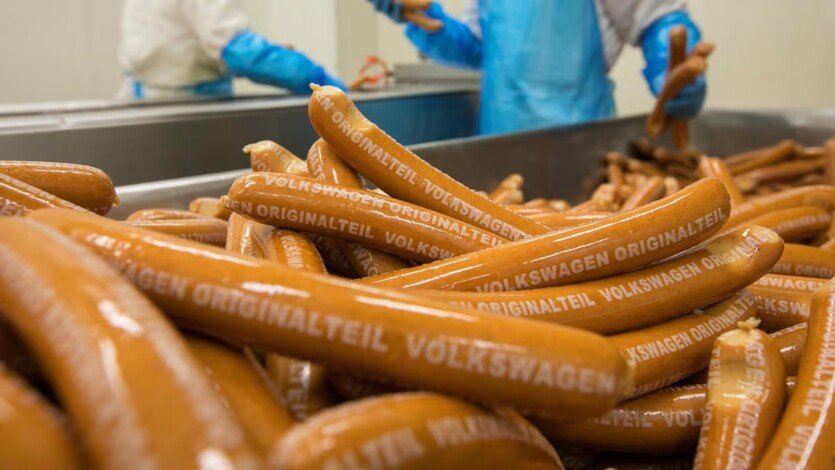
It is said that the German automaker’s core business is weakening, but Volkswagen still set a sales record — albeit for sausages.
In 2024, Volkswagen sold 8.5 million of its own-brand sausages — including the popular German fast food, karivurst. These figures show growth for the automaker’s «meat» lineup, with sales of 200,000 units more than a year ago.
«With more than 8 million Volkswagen Original Currywurst sausages sold, we are celebrating a new sales record,» wrote VW’s Chief Human Resources Officer Gunnar Kilian in a post on LinkedIn.
The Volkswagen Currywurst — is nothing new, having been around since at least 1973. Originally created for the workers of the Wolfsburg plant, the delicacy is now an embodiment of German culinary heritage. The sausages are produced according to a secret recipe, have an official VW number (199 398 500 A) and can be sold in Volkswagen canteens, supermarkets and even exported to other markets.
Interestingly, in 2021, attempts to remove the karivurst from the canteen menu were met with outrage and even criticism from former German Chancellor Gerhard Schroeder, who was known to promote it as part of the cultural heritage of German factory life.
Of course, we won’t compare sausage sales to car sales, but we will provide data on the main business. There are no records there, and there is even a decline — in 2024, the company’s car sales decreased by 2.3% to 9.03 million for all brands (including Audi, SEAT, and Škoda) and 5.2 million separately for cars and vans with the VW logo.
A breakdown by region provides a better picture of the challenges the automaker is currently facing:
- China: down 10%, mainly due to increased competition in the electric vehicle market and a slowdown in the economy.
- Germany: down 2.2%, driven by rising production costs and lower demand.
In 2024, Volkswagen’s net profit after tax decreased by 30.6% to €12.3 billion (compared to €17.8 billion in 2023), but total revenue increased by 0.7% to €324.7 billion. Rising costs and falling demand prompted the company to cut up to 35,000 jobs by 2030 and close plants in Germany.
Source: Fortune

Spelling error report
The following text will be sent to our editors: